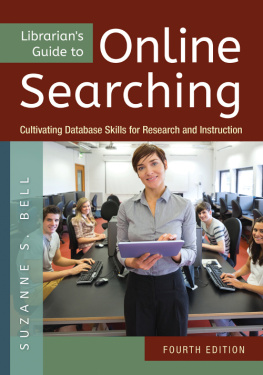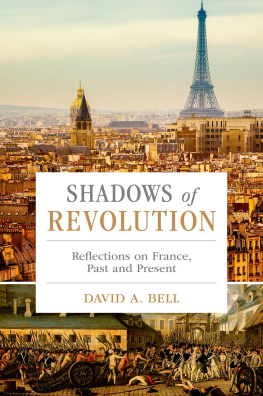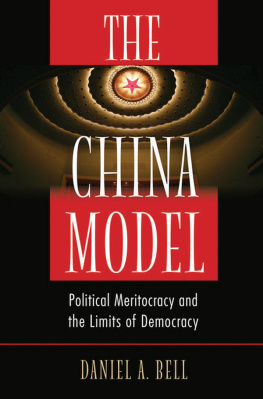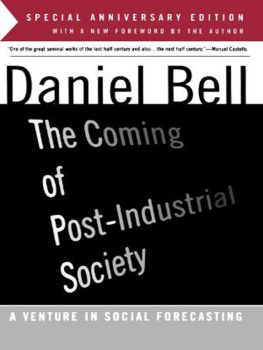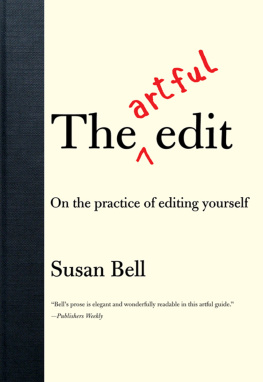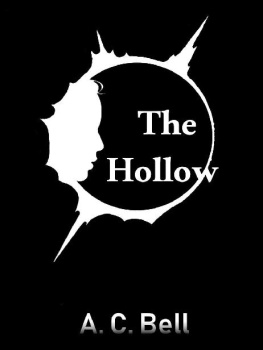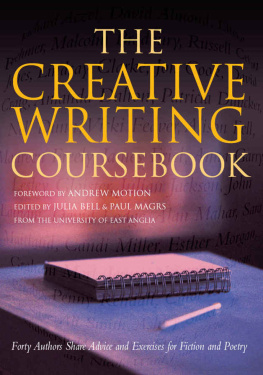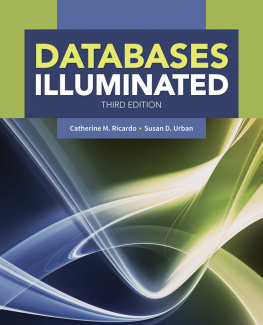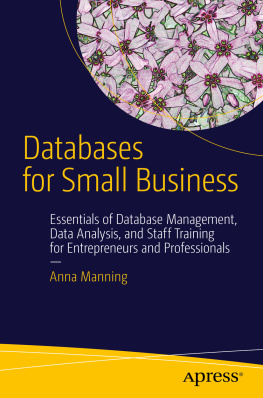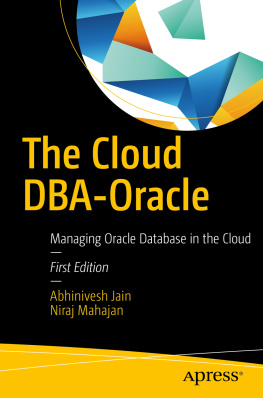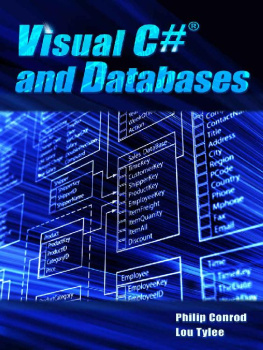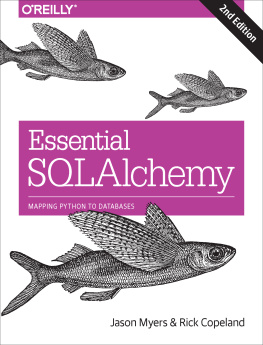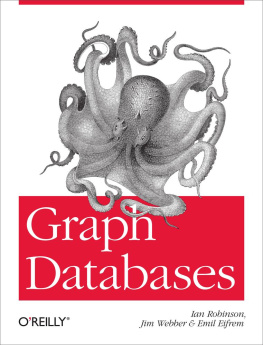


Copyright 2015 by Suzanne S. Bell
All rights reserved. No part of this publication may be reproduced, stored in a retrieval system, or transmitted, in any form or by any means, electronic, mechanical, photocopying, recording, or otherwise, except for the inclusion of brief quotations in a review, without prior permission in writing from the publisher.
Library of Congress Cataloging-in-Publication Data
Bell, Suzanne S.
Librarians guide to online searching : cultivating database skills for research and instruction / Suzanne S. Bell. Fourth edition.
pages cm
Includes bibliographical references and indexes.
ISBN 978-1-61069-998-3 (pbk : alk. paper) ISBN 978-1-61069-999-0 (ebook) 1. Database searching. 2. Electronic information resource searching. I. Title.
ZA4460.B45 2015
025.04dc23 2014038457
ISBN: 978-1-61069-998-3
EISBN: 978-1-61069-999-0
19 18 17 16 15 1 2 3 4 5
This book is also available on the World Wide Web as an eBook.
Visit www.abc-clio.com for details.
Libraries Unlimited
An Imprint of ABC-CLIO, LLC
ABC-CLIO, LLC
130 Cremona Drive, P.O. Box 1911
Santa Barbara, California 93116-1911
This book is printed on acid-free paper 
Manufactured in the United States of America
To my grandfather, Augustus Hunt Shearer, librarian and teacher, and my father, Vern Coventry Bell, inventor and engineer. You may not have understood this book, but you would have appreciated it. Thank you both for the gifts that made it possible.
Preface
Welcome to the wonderful world of database searching! Roy Tennants (2004) now famous quote that only librarians like to search, everyone else likes to find has perhaps been too frequently repeatedbut its hard not to, because its true. There are certain kinds of minds that enjoy solving puzzles and ferreting out information, and the owners of those minds often find a good fit in library careers. Librarians do like to search, although generally we arent born knowing it: its a realization that emerges later, with experience or in a class. If you are a researcher or a student in the position of having to search for the information you need, you may also find that there can be some interest and pleasure in the process as well as the product.
If it is true that most people only want to find, and are perfectly happy with the Google model of one simple search box and long lists of results, one might ask, Why should I care about learning more sophisticated search techniques? Why should we still teach a course on database searching? (or Why should I buy a book on database searching?) Will there ever be an opportunity to use this information again?
In offering you this book, I wholeheartedly believe those questions can be answered in the affirmative. Yes, learning about more sophisticated search techniques continues to be helpful, and it will increase your effectiveness in helping others to do research, or your own productivity as a researcher. No matter how simple the initial interface becomes, it still helps to know something about database structure, that is, what is going on under the hood. This is especially helpful for understanding what is possible with any given database: what degree of precision in searching you can expect, and thus what you can expect in terms of results. There will continue to be advanced versions of the interface that will allow experts to do more efficient, targeted, and useful searches. Yes, people will do and are doing more searching on their own: if you are not a librarian and are looking at this book, it will introduce you to resources you might not have been aware of and help you to be more effective. For librarians and library students, searching is a part of our profession, an area in which we need to be ready to offer our users more skills than they have on their own. Indeed, as users do more searching on their own, the questions that they approach librarians with become more difficult. They have taken care of the easy questions; librarians need to be ready for the hard ones. This is still an important part of our skill set.
Most of the techniques and strategies provided in this book are not particularly complex or hard to master, but they need to be stated and learned, because they are not generally how people think. You need to learn to parse questions into good search strategies. You need to really internalize how Boolean logic works to understand that when a search returns only a few results, the tactic to take is to use fewer, broader search terms, not add more, and more specific, terms. One of the most essential techniques sounds like the simplest: to use your eyes and truly analyze what is on the screen. This is something that very few people really do, however, so it is also something to learn.
One of the overriding goals in this book is to remain thoroughly grounded in the real world. The examples and exercises are drawn from real life, and use commercial databases commonly available at academic and/or major public libraries. We also look at some databases that are freely available on the Web, but the free websites discussed have been carefully chosen for their expected longevity. The emphasis is not on providing every detail of every database presented, but rather how you can use a set of basic concepts (the Searchers Toolkit) in order to look at any interface (use your eyes) and understand what you are seeing (engage your brain), so as to use effectively whatever search capabilities are provided. Once you have a basic idea of how databases are put together and have grasped the collection of concepts and techniques this book calls the Searchers Toolkit, you should be able to plunge into any database that comes along and figure out how it works. In fact, the other main goal for this book is to help you learn to be flexible and adaptable. What more important skill can there be in our rapidly changing world?
This text will expose you to a whole range of databases: multidisciplinary, social science, medicine, science, bibliographic, humanities, and statistical/numeric. You will learn that even when you dont know anything about a subject, using some good, general principles, you should be able to use an unfamiliar database and do a reasonable search. A discussion of information-seeking behaviors and how to do an effective reference interview helps with this. Most important, you shouldnt be afraid of any subject area and declare it off-limits. As all of these choices begin to build up, however, the natural question is this: How do you know which database to use? Or should you use the Web? We address these issues as well. Note that although the Web does enter into the discussion from time to time, this book does not attempt to teach you to search the Web better. There are already many excellent books on the market to fulfill that purpose. The focus here is on purpose-built, sophisticated databases, both fee-based and some, incredibly, freely available. If you thought searching started and ended with Google, surprise! Theres a whole other world waiting for you.
Not only will you learn to search databases, but youll also learn something about passing your knowledge along: tips and guidance for showing others how to get what they need out of a database (and how to not have a panic attack in the process). In addition, well go over points to consider in evaluating a database for purposes of writing a review, or, for librarians, as part of collection development. With budgets everywhere as tight as they are, librarians are more frequently finding themselves in the position of having to evaluate and choose among current resources.
Next page
